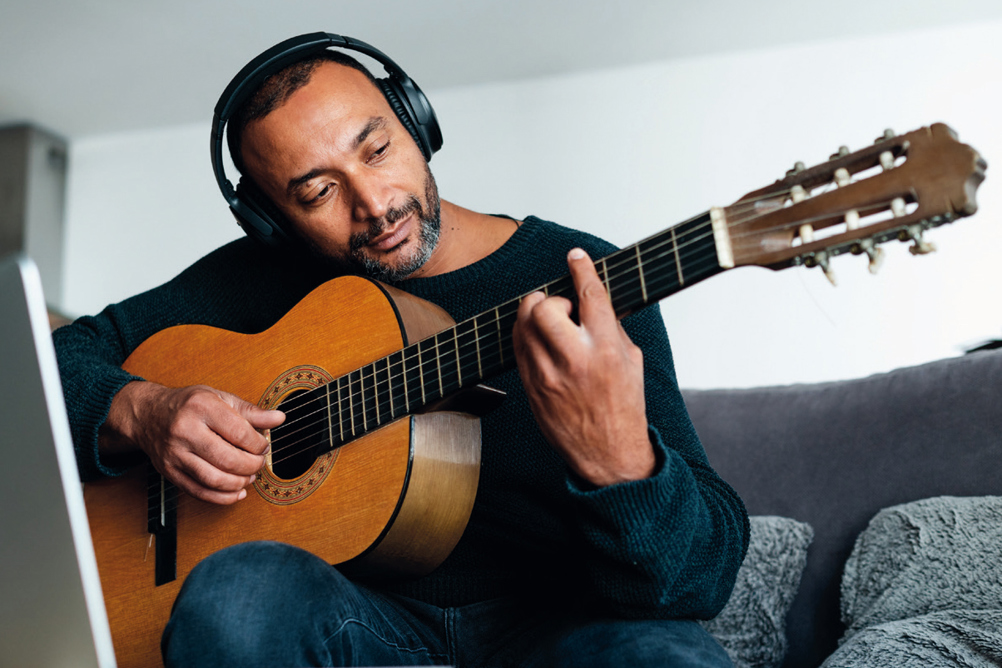
If you speak to most teachers about current issues in the profession, it is highly probable that they will mention workload, burnout and salaries, to name but a few. For the class-based music teacher, our issues can look a little different. Other teachers may not understand the pressures of having to single-handedly be responsible for planning nativities and concerts, or having to stay during lunchtimes and after school to run ensembles and choirs multiple times a week. For teachers of KS4 and KS5, there's the additional time spent on exams and assessments – and none of these account for the time spent actually teaching.
With all this activity, it can be easy for us to take music for granted in our personal lives. I once found myself scrolling online and came across a beautiful singing video, and realised that it had been a long time since I'd sung anything for myself – any musical activity I engaged with was solely for work. If I was singing, it was to work out an arrangement. If I was playing an instrument, it was to figure out the best way to teach it. While this may not be the case for every music teacher, it's important that we consider that musical apathy could become a reality for some of us. If you have ever felt like this, perhaps the ideas below could kickstart that love for music again.
Learn a new piece for yourself
As teachers, we are excellent at instructing others. We can break down concepts and skills using a variety of methods, but the result of that is that we can sometimes forget what it's like to be a student. The phrase ‘lifelong learners’ occasionally pops up in education, but do we really embrace that concept for ourselves?
I sat down with my guitar for the first time in a long time, and reminisced about how I used to print off chord sheets from the internet for a song I enjoyed and spend evening after evening going over the strumming patterns and chord changes. I realised that I hadn't done that for quite some time, so I've made a conscious effort to start doing that again.
Explore new music
I wouldn't necessarily consider myself an old person in any way – though my students may disagree – but I find myself regularly entering those discussions about how music today ‘just isn't the same anymore’. Also, I tend to listen to older songs that I know and enjoy, instead of taking the time to discover and engage with something new.
We are fortunate to be living in a time where music is so easily accessible. Perhaps there is a genre you wanted to listen to more, or a composer whose work you wanted to delve into. With a number of streaming platforms and apps, this can be a quick way to reignite that love for music again and you don't have to worry about fitting it into your curriculum.
Relive the musical process
For some teachers, it can be a challenge to teach young people how to compose. Sometimes it's easier to go and teach the process when you have gone through it yourself just for the fun of it. Not every musician is inclined to compose, but perhaps you can be creative in a different way. Could you try playing a piece in a different time signature? Could you do a cover of a song in a different style from the original? Could you record some sounds around the house or local area and experiment with sampling? Creativity for its own sake can be just the thing to help maintain a personal love of music.
There are other things you could do, such as performing at an open mic or going to watch some live music, which, unsurprisingly, I find a lot less stressful when I don't have to manage a class of 30 children! You could also take a course to develop your musicality in a new way or learn something completely new. My challenge to you is to pick one idea from this article to try within the next month. Whatever you decide to do should be solely for you. It may well be useful at some point in your career, but that shouldn't be the reason you do it. We should be able to engage with music for its own sake, and not just to pass the knowledge on. If we can pursue a personal love for music, it may just keep us in the sector a little longer. This may be my personal bias, but I think that the music education sector is better with us in it.




